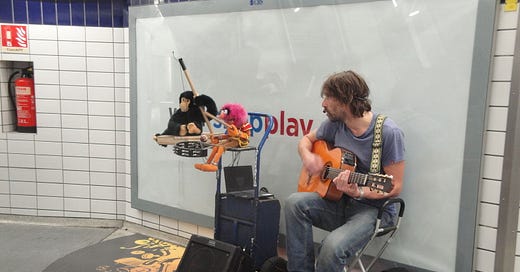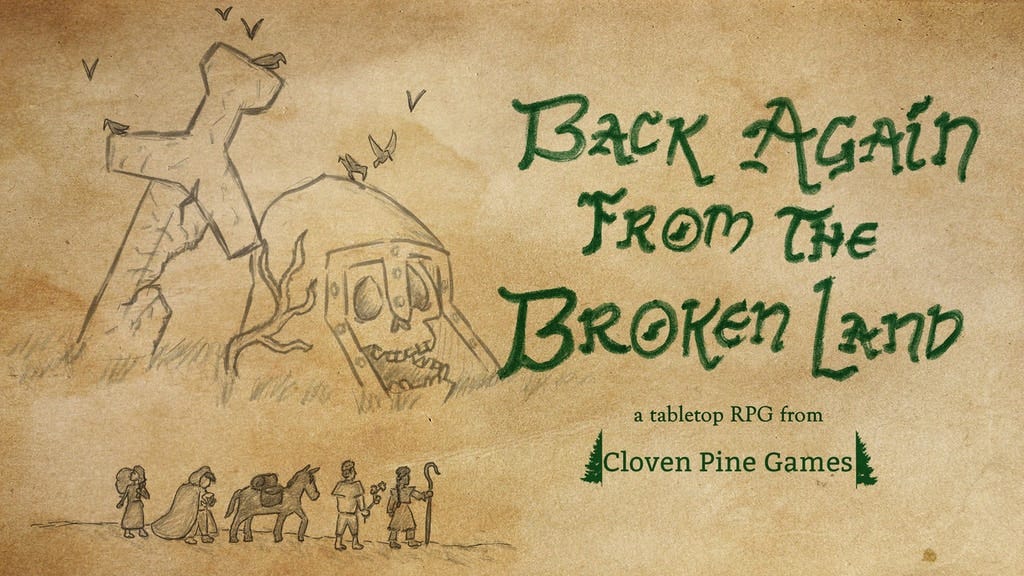Our February Read: Who Gets Paid When Art is Free?
Amanda McLoughlin is my guest for a conversation about gift (and other) economies
This month, we’ll be reading Ted Gioia’s “Gratuity: Who Gets Paid When Art is Free?” In this essay for Image, Gioia offers a meditation on how we value art and artists. He’s well qualified to do it, as a jazz musician and music historian. (His history of work songs is high on my wishlist).
In the essay, he draws on a book I love, Lewis Hyde’s The Gift, to wrestle with the question of how art fits into the gift economy or the market economy. Here’s a preview:
Creative people themselves are gifted—even the language we use here is revealing—and they feel a strong drive to share their gift with others. Even more intriguing, their lives prove the most incredible claim made by Hyde: the seemingly paradoxical assertion that gifts increase in value when given away. […]
Music is what I call an anti-commodity—a thing that isn’t exhausted when used or given away but gets larger and more valuable, like the fish and loaves in the gospel. In that way, a song is like love or friendship or trust, those other anti-commodities that increase with the giving. The same is true of a painting or novel or dramatic production. We have now arrived at what, in Hyde’s words, “seems at first to be a paradox of gift exchange: when the gift is used, it is not used up. Quite the opposite, in fact: the gift that is not used will be lost.”
I’m delighted to have Amanda McLoughlin to join me for this discussion. She’s a creative artist, and someone who thinks creatively about how to give others a boost into the gift or market economies.
Amanda is the creator and CEO of Multitude, an independent podcast collective and production studio based in New York City. Multitude produces original shows, publishes free resources for podcasters, and helps clients of all sizes create, market, and grow great shows. A YouTuber and small business advisor before starting Multitude, her career is dedicated to helping other creators make a living by making great stuff online. You can find her on twitter @shessomickey or on her website: amandamcloughlin.com.
I’ll be working on my dialogue with Amanda, and I’d love to incorporate some of your preliminary thoughts and questions on the essay. Please leave me a comment below.
And, speaking of the arts/gift/market economy, my husband Alexi and I have a kickstarter going. We’ve written an rpg, Back Again from the Broken Land, which is about small adventurers walking home from a big war. It’s inspired by Tolkien, Le Guin, and other fantasists.
It is not free, and there’s always an interesting discussion in rpg circles about what is a fair price for a game. A pdf of our game is $8, which is certainly more than the cost of the paper it’s (not) printed on. Of course, if you price it in terms of the experience you’re buying, it’s less than a single movie ticket, and it’s a 3-4 hour game for you and several friends to enjoy together.
If you price it in terms of our creative labor it’s (throws up hands vaguely). But if you ask one of our playtesters, it’s:
A storytelling game that feels like a bittersweet montage at the end of a giant fantasy movie. The burden of hope, the clarity of sacrifice, the soul-healing power of a lovingly made breakfast.
It certainly gives us a lot of joy when we hear about the stories other people have told when they play. You can check out Back Again from the Broken Land on Kickstarter.
Ex libris,
Leah






Thanks for recommending this piece! I have to admit I laughed out loud at "Do dentists worry about inauthentic ways of filling cavities?" (Especially because, well, they do. I know a lot of medical professionals who worry about getting alienated from the human care imperative at the heart of their work through repetition.)
One of the questions that arose for me as I read it with Amanda in mind was Multitude's practice of publishing "how-tos" and other educational materials marketed at indie producers. Do you consider that work a "gift" in any way?
Thanks for the article! Our culture of consumption has transitioned from one where we need to pay for basic access to content (e.g. buy a record to hear the music, buy a newspaper for the news) to one where we expect to have access to the content for free - payment being a sign of thanksgiving (e.g. subscribe to me on Twitch, if you like what I'm doing sign up on Patreon to support me). It seems to me that this transition has made it so that it is less about selling the content (since it's available for free), and more about selling the artist (developing good will and connection to encourage donations).
The question for me is - does this work? Given the lower barriers to entry and exposure, are more content creators receiving a just wage now than in the past?
Acknowledging the many limitations in this comparison, does the model of the Word of Fire Institute (subscribe for access to this great content) work better than that of the Thomistic Institute (donate to help keep this free content coming)? For news, what about The Pillar's model vs. The Athletic's? What does the fact that Dwarf Fortress needed to start development for Steam once the creator understandably had a need for more money tell us about the future of free (as in beer)?
As an ending anecdote, during the HK protests in 2019, young people found an interesting way to support sympathetic content creators. Long playlists of their YouTube videos were made, designed to played silently in the background (or even overnight). This way, the creators would receive a great deal of ad revenue without anyone actually having to spend time watching their videos, an interesting illustration of my earlier point of paying artists detached from their actual art.